Wang Center Research Grants
The Wang Center Research Grant Program is designed to support students, faculty, and faculty-student teams that seek to conduct original research in an international setting. Consideration is also given to proposals seeking to conduct research within the United States on topics that underscore the connection of the local and global issues of diversity, social justice and sustainability. Proposals are reviewed by the Global Education Committee for recommendation to the Executive Director of the Wang Center for final approval by the Provost. All awards are administered through the Wang Center.
- Applications open in November each year during International Education Week
- Due date is March 1, 2026 for research in the 26-27 academic year
Eligibility and Criteria
All grants awarded in spring are for activities to be carried out between June 1st and May 31st. Seniors are not eligible for student grants or student/faculty grants. Graduate students are eligible for funding if they will be returning to PLU in the semester following their project. Rising seniors graduating in December must complete their projects by the end of January (after their graduation). Grant applicants should review the PLU Travel Advisory Policy for faculty/staff university-sponsored international travel policy and student university-sponsored international travel policy . Per policy guidelines, PLU will not fund travel to high risk areas. (http://travel.state.gov/). Grant recipients must follow PLU’s vaccine requirements and must adhere to vaccination and/or booster requirements of the host country.
- The Wang Center will screen each applicant for eligibility as part of the application process, prior to proposals being reviewed by the Global Education. Eligibility criteria is listed below for each type of applicant.
Proposals are accepted from full-time PLU undergraduates and graduate students for advanced research and experiential learning. The grant monies are available for projects that contribute to the individual’s educational experience in ways not available through traditional study away programs. These grants are intended to support supplementary travel expenses for capstone research, independent internships, service learning projects, or other independent projects.
Freshman, sophomores, or juniors are eligible.
Graduate students are eligible for funding if they will be returning to PLU in the semester following their project.
Rising seniors graduating in December must complete their projects by the end of January (immediately following their graduation).
The grants may not be used to supplement the cost of traditional study away expenses or for projects and internships that earn academic credit.
Up to four student grants are awarded annually for amounts up to $3000.
All full time tenured, tenure-track, visiting faculty members, and associates to the faculty at PLU are welcome to apply. Individual faculty may apply for up to $4000 to support research. Proposals are strongly encouraged from faculty intending to conduct research in locations where they have had prior experience. Participation of emeritus faculty and members of the PLU staff for mentoring or research purposes will be considered in special circumstances. Contingent on available funding, awards may be used for stipends involving qualified research at PLU, in Parkland and/or the Greater Tacoma area. In determining the allocation of funds, priority will be given to full time tenured and tenure-track faculty who are conducting research projects that require travel outside the Puget Sound region.
Grant proposals are also invited from student-faculty teams and may receive awards in the range of $5,000 – $8,500. All full time tenured, tenure-track, visiting faculty members, and associates to the faculty at PLU are welcome to apply. Preference will be given to student-faculty teams who have not previously received Wang Center grant support; however, student-faculty teams engaged in on-going research may apply for a second grant. Proposals are strongly encouraged from teams intending to conduct research in locations where the student(s) and/or the faculty have had prior experience. Participation of emeritus faculty and members of the PLU staff for mentoring or research purposes will be considered in special circumstances. In determining the allocation of funds, priority will be given to full time tenured and tenure-track faculty.
Student-faculty team research is led by the faculty member and research is conducted altogether on site.
Freshman, sophomores, or juniors are eligible for funded research teams. Graduate students are eligible if returning to PLU in the semester following the project.
The grants may not be used to supplement the cost of traditional study away expenses or for projects and internships that earn academic credit.
No stipends may be paid to participants.
Congrats 2025-2026 Wang Grant Recipients!
Faculty Research Grants
Douglas Epps
“Documenting the Emotional & Decisional Impacts of Anti-immigration Executive Orders on PLU Social Work Students” Tacoma, WA
Faculty-Student Research Grants
Carrie Ann Matyac with Oredolapo Kartchner
“Beliefs & practices surrounding traditional medicine in Indigenous Nigerian communities” Nigeria
Bridget Yaden with Maggie Sutton
“Bilingual Education in Norway: Attitudes,Pedagogies, & Outcomes” Norway
Student Research Grants
Taezha Watson
“Let’s Lime: Finding ‘Home’ through Tobagonian Community building, Conversation, & Culture” Tobago
Application will include:
- Online application questions based on the evaluation rubric
- Budget of estimated expenses (NOTE: Any additional sources of funding should be specified)
- Current resume (students) or CV (faculty)
- Letter of support from a faculty member and the approval of the department chair (students)
- Approval of department chair and dean (individual faculty and student-faculty teams)
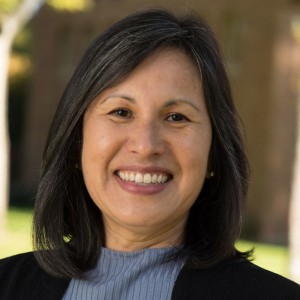
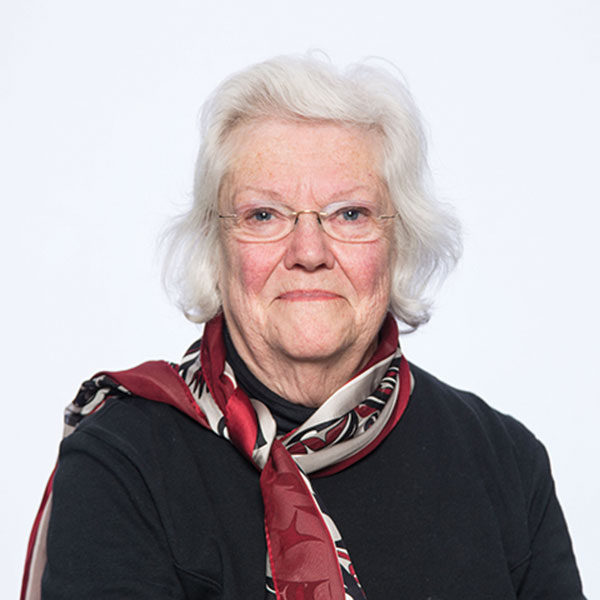
Congratulations to Anna Leon-Guerrero and Anne Kelleher whose 2018 Wang Center research grant led to a publication, “Heads Above the Parapet: Personal Motivation and Professional Practice Among Northern Ireland’s Community of Grassroots Peace Practitioners,” published by Peace and Conflict Studies.
Check out this video about Dr. Julie Smith and April Kelly’s 2024-2025 research project in Windhoek, Namibia!
Building on Global Experiences at Home
After researching artist collectives in Oaxaca, Mexico through a Wang Center Research Grant, Saiyare Refaei put her experience to work here in our Parkland community. Saiyare saw the potential for uniting communities through public art and founded the Parkland Community Mural Project.
Past Wang Grant Recipients
Browse past student, faculty and student-faculty research projects. This list represents Wang Research Grants that were awarded. In a limited number of cases, individuals may not have utilized the grant or deferred their research.
Students:
- Daniel Benson “Redefining Our Ethos of Care: A case study on the religious values underlying medical practice at La Clinica del Pueblo”
- Sophia Jeter “LEY PROMESA: Displacement in Puerto Rico”
Faculty:
- Dr. Brenda Llewellyn Ihssen “The Life of St. Stephen the Younger – A Translation with Historical Commentary”
- Dr. Heather Mathews “Decolonizing the European Museum”
Student Faculty Teams:
- Dr. Angie Hambrick with Kimara Blakely, Dailyn Cooks, Makayla Martinez, Nya Spivey, Taezha Watson “Black Girls Research (BGR) with a two part project titled Not By Choice: Mothering, Caretaking, and Black Womxn’s Labor In Higher Education”
- Dr. Julie Smith with April Kelly “Improving Conservation Management Practices Within N/a’ankusê Foundation Reserves: Investigating Lion and Hyena Diet Preferences through scat analysis”
Students:
- Kaden Bolton, “Britain’s First Zero Emissions Zone: How Environmental Public Policy has Affected Oxford’s Community”
- Mackenzie Mueller, “The Decline of the STEM Education System in Puerto Rico and its Effects on Female-Identifying Students and Educators”
Faculty:
- Dr. Suzanne Crawford O’Brien, “Healing the Soul Wounds of Colonialism: First Nations Art Therapy and Creative Restorative Justice”
Students:
- Nick Etzell, “Vocational Understanding and Effectiveness Abroad: A Case Study of Oxford”
- Jackie Lindstrom, “Researching Barriers to Healthcare Access for Migrant Women in the UK through Data Analysis and Interviews”
Faculty:
- Dr. Emily Davidson, “Testimonio’s Future and Past: Remembering the US Invasions of Panama”
Student-Faculty Teams:
- Dr. Giovanna Urdangarain with Ellie Dieringer, “Identity and Material Memory: Holocaust Museums in the Southern Cone”
- Dr. Jan Weiss with Hannah McCann, “Creating Culturally Relevant School Routines to Support San Learners in Namibia”
Students:
- Kerry Dolan, “Violence Against Indigenous Women of Oaxaca: Raising Awareness”
- Keisha Laguer Vandessppooll, “Representation and the Wellbeing of the Disability Community in Oaxaca”
Faculty:
- Dr. Corey Cook, “Cross-Cultural Extensions of the Affordance Management Approach to Understanding Stereotyping and Prejudice”
- Dr. Emily Davidson, “Testimonio’s Future and Past: Remembering the US Invasion of Panama”
- Dr. Katherine Wiley, “Depicting the Other: Long-Term International Volunteering and its Effects”
Student-Faculty Teams:
- Dr. Rona Kaufman with Kiyomi Kishaba, “Migration, Identity, Memory, and Trauma: The Jewish Diaspora in Uruguay”
- Dr. Jan Weiss with Hannah McCann, “Creating Culturally Relevant School Routines to Support San Learners in Namibia”
Student Projects
- Aidan Liddiard, “Understanding the Relationship between el Centro de Esperanza infantile and Marginalized Children in Oaxaca”
Faculty
- Dr. Ami Shah, “Establishing CRED: Oxfam’s Quest of Dignity in Humanitarian Marketing”
- Dr. Tamara Williams, “Literary Production in Context: The Revival of the Long Poem in Contemporary Mexico”
Student-Faculty Teams
- Dr. Angie Hambrick with Shalom Wundimu, “Roots: Navigating the Natural Hair Journey in White-Dominated Spaces”
- Dr. Greg Youtz with Elizabeth Kulus, “Beyond Fair Trade: The Cocoa ‘Bean to Bar’ Movement in Trinidad and Tobago and Ramification for the Puget Sound Area Partnerships”
Student Projects
- Christina Easley
Faculty
- Agnes Choi
- Anna Leon-Guerrero and Ann Kelleher
- Mark Mulder
- Adela Ramos
- Jennifer Spence
Student-Faculty Teams
- Jordan Levy with Sandra Estrada
- Heidi Schutz with Rebecca Frampton
- Giovanna Urdangarain with Riley Dolan
- Jan Weiss with Emily Johnson
- Robert Wells with Siobhan Chachere, Mackenzie Cooper, Julia Grosvenor, and Helen Smith
Student Projects
- Michael Diambri
- Riley Dolan
Faculty
- Wendy Call
- Nathalie op de Beeck
- Shannon Seidel
Student-Faculty Teams
- Heidi McLaughlin with Alannah Smith
- Robert Wells with Rachel Lovrovich, Joshua Wiersma, Julia Grosvenor, and Mackenzie Cooper
Student Projects
- Laura Hillis
- Ellie Lapp
- Matt Macfarlane
Faculty
- Susane Crawford-O’Brien
- Ronald Gerhardstein
- Gina Hames
- Linda Miller
Student-Faculty Teams
- Heidi Schutz with Crystal Asplund
- Vidya Thirumurthy with Amanda Hartley
- Robert Wells with Christopher Boettcher, Rachel Lovrovich, Kelly Lavelle, and John Struzenberg
Student Projects
- Nate Hansen
- Emily Holt
- Courtney Lee
- Jennifer Shockley
- Martha Spieker
Faculty
- Brenda Llewellyn Ihssen
- Paul Manfredi
Student-Faculty Teams
- Robert Wells with Natalie DeFord, Evan Heringer, Jasper Sortun and Grace Takehara
Student Projects
- Meg Dolde
- Kelly Hall
- Daniel Wikstrom
Faculty
- William Teska
- Giovanna Urdangarain
- Dean Waldow
- Leihua Weng
Student-Faculty Teams
- Robert Wells with Olivia Ash, Amanda Brasgalla and Taylor Lunka
Student Projects
- Emily Bishop, Echoing Thresholds: Poetry and Culture in the UK
- Shannon Burlingame, Researching APPO Protests of 2006
- Seanna Hewitt, Analysis of Water-Related Issues in the Rio Verde-Atoyac Watershed of Oaxaca
- Saiyare Refaei, Research on the Role of NAFTA on Oaxacan Artist Collectives for Social Justice
- Karina Sandoval, Researching the Role that Social Development Organizations have on Mixteco-speaking Children
Faculty Projects
- Bradford Andrews, Studying the Mesoamerican Bipolar Stone Tool Technology: Gaining Insights for Interpreting Artifacts from Aztec Calixtlahuaca
- Heather Mathews, After Multiculturalism: Identify, Integration and Contemporary Art in Germany
- Donna Poppe, Recording Songs of Children in Egypt
- Teru Toyokawa, Developmental Demands and Transition to Adulthood in Thailand
Student-Faculty Projects
- Charles Bergman and Nevis Granum, Exposing the Relations between Legal and Illegal Wildlife Trafficking
- Ami Shah and Jared Wright, Neoliberal Development? The Effects of NAFTA on Local Livelihoods in Sothern Mexico
- Robert Wells, Haley Huntington, Kortney Scroger, Valery Jorgenson and Katherine Bauman, Tapped Out: Unearthing the Global Water Crisis
Student Projects
- Torhild Skillingstad, The status and teaching of Taiwanese
- Kenny Stancil, An analysis of the use of Public Space in Santiago throughout the Chilean Student Movement
Faculty Projects
- Lisa Marcus, Finding Zlata Jampolski: Nostalgia and Jewish-American Self Construction
Student-Faculty Projects
- Joanne Lisosky, Paul Dodson, Julianne Rose and Katie Baumann, Media Lab: Fear and Islamophobia
Student Projects
- Mycal Ford, Chinese Citizenship and Inter-Ethnic Relations
- Brett Rousseau, Colony Collapse Disorder and the Honey Bee
Student-Faculty Projects
- Paul Manfredi and Leif Nordquist, Chai-na: Documenting the End of the Blackbridge Art Village
- Claire Todd and Matthew Heglund, Glacial History and Climate Change in Northern Bolivia
- Robert Wells, Katie Scaff and Jacob Ooley, Riding the Rails: Connecting Cascadia
Student Projects
- Holly Borroff, Music and Identity: Exploring Music Education in Oaxaca, Mexico
- Reed Ojala-Barbour, Comparisons of the Diversity of Small Mammals Between Pristine and Disturbed High Andean Forests in Ecuador
- Crystal Swetz, Dating and Marriage Norms and Preferences Among Chinese College Students
Faculty Projects
- Joanne Lisosky, War on Words: Protection of Journalists in Conflict
Student-Faculty Projects
- Adam Cathcart and Matthew Anderson, East German-Chinese Cultural Relations in the Cold War
- Amy Grinsteiner and Andrew D’Antonio, Music as a Hub in the London Community
- Barbara Temple-Thurston and Rae-Ann Barras,Using Culture to Shape Environmental Attitudes and Activism
- Robert Wells, Elizabeth Herzfeldt-Kamprath, Kari Plog, Lorna Rodriguez,Oil Literacy
Student Projects
- Austin Goble, Exploratory Research of Organic Farms in Turkey
- Jessica Lupton, A community’s Response to a Government’s Neglect: Researching Educational and Community Development in the Esmeraldas Province
- Sarah Sandgren, Domestic and International Policy in Ecuador: Following the Government in the First Year, Post-Election
- Melissa Severson-Hampton, Proponents of Change: Norway’s Shifting Perspectives on Language
Faculty Projects
- Amy Beegle, Afro-Peruvian Jazz Performance and Transmission in Peru
- Peter Davis, A Field-Based Geologic Investigation of Panama’s Dulling Subduction Zones
- Steven Thomson, “Children of the Village”: On-going Research on Ethnicity, Community Development and Regional History in Coastal Gambia
Student Projects
- Matthew Ferraro, Islam and Morocco’s Political Identity
- Elisia Howard, Humanity in Action, Independent Fellowship
- Jessica Lee, Morocco: Functional Art and Culture
- JacobTaylor-Mosquera, Promoting Literacy in a Predominately Afro-Ecuadorian Community
Faculty Projects
- Kathlyn Breazeale, “Witches,” Nature, and Religious Imagination: The Sámi of Scandinavia & Spiritual Baptists of Trinidad and Tobago
- Adam Cathcart, War Mobilization in the Sino-North Korean Borderlands, 1945-1953
- Teresa Ciabattari, Race, Colonialism, and Tourism: Attitudes towards Tourism and Tourists in Tobago
Student-Faculty Projects
- Charles Bergman, Wildlife Trafficking in Ecuador
- Claire Todd, Glacial History and Climate Change in Southern Peru
- Robert Wells, Shannon Schrecengost, Julie Olds and Melissa Campbell, Dangers Within: Canada, the U.S. and Cross-Border Crime



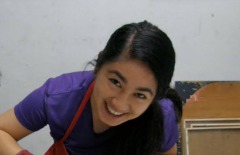
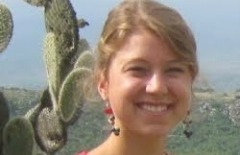
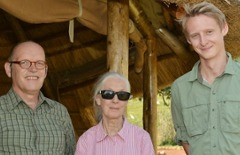
Social Media